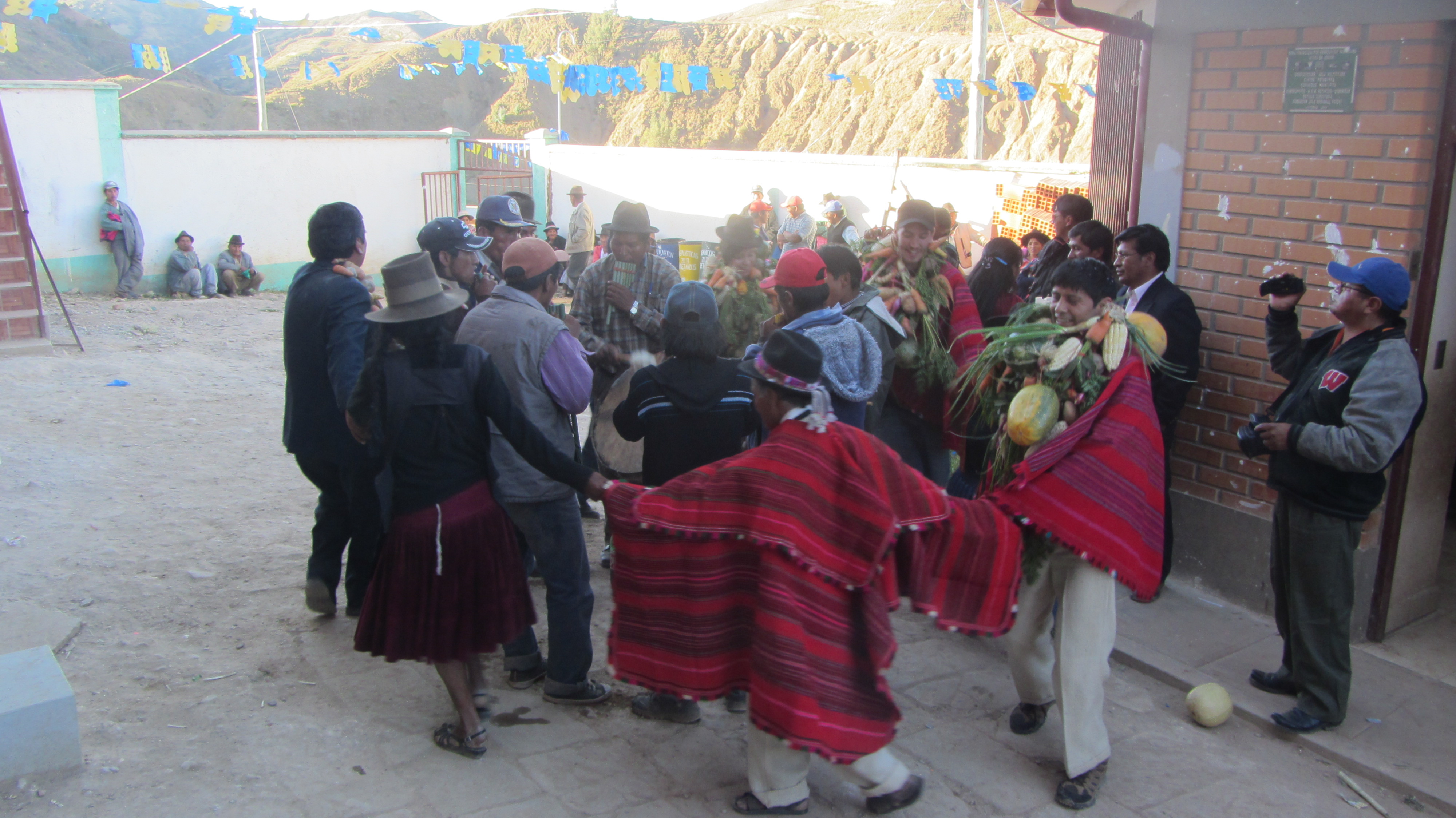It is always worth repeating, the key to Alma projects is community involvement. We work in partnership with the community members where we implement our projects ranging from the initial planning stages to the eventual handing over of the project to the community. One aspect of the Andean culture which helps to make this possible is the importance placed on reciprocity.
Reciprocity is everywhere in the Andes. Most communities still work their fields in the tradition of ayni: today for you tomorrow for me. Everyone in the community plants and harvests everyone’s fields with the only pay being the security that everyone will work your field just as you did theirs. When I visit communities planning to spend a few days, I bring coca leaves, fruits, and other foods to give to the families that feed and house me. This isn’t only to build relationships and goodwill – it is also a way to guarantee that I will have a hot meal and roof to sleep under in return for the gifts. Even the acts of giving and receiving carry symbols of reciprocity. When one gives or receives anything in an indigenous Andean community, it is done with two hands – one to give and one to receive.
While in the Bolivian community of Huantapita, I participated in a dance from the community which exemplifies the importance that reciprocity still holds. Men, women, and children from the community come with necklaces adorning the various agricultural products grown in Huantapita: potatoes, squash, carrots, etc. and put them around your neck to the point that you can no longer turn your head and your back strains to maintain your body upright. Then everyone dances around the cane flutes and drums circling without stopping, until it is time for the recipient of all the gifts to redistribute the food among other dancers and spectators. They give you a lot more vegetables than you need, and you in turn give what you don’t need to others. Receiving and giving. Giving and receiving. Reciprocity.
Some of these traditions – the ayni, two-handed giving and receiving – are starting to fade from some communities. In general, however, they remain strong traditions and constant reminders that we are social beings and in order to survive we must work together; never taking more than we need and always remembering to give back. It is my hope that the culture of reciprocity – the dances, customs, and communal institutions – continue in the communities and inspire others to always give and receive, at least in intention, with two hands.
Ian McGroaty
Program Director


Heh Ian, very cool post. thanks! I wonder if you noticed a difference in the concept of reciprocity between Peruvian and Bolivian communities.